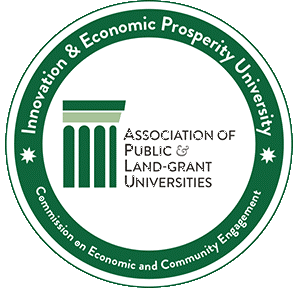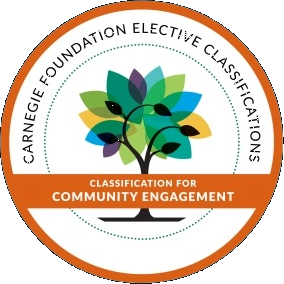2022 Recipients
Sharieka Botex, College of Arts and Letters
In 2021, Shareika Botex served as a member of the MSU Graduate Leader Institute, which empowers Spartans to take a proactive approach to their leadership. Through this program, Botex planned a two-day event inviting a panel of Black Women Scholars at MSU to discuss their journeys and work as educators and scholars, while also providing space for community members and partners to engage in dialogue. Panel discussions focused on how the scholars’ work provided support and resources for helping community progression, addressed societal issues, and uplifted the Black community and other communities with whom they collaborate.
Wilfredo Flores, College of Arts and Letters
In 2018, Wilfredo Flores began partnering with local healthcare providers, including Ingham County’s Health Department, to develop more equitable client intake forms for queer and transgender people. Along with members of Queering Medicine (QM), a group cofounded by Flores to improve health outcomes for the LGBTQ+ community, research began by engaging in conversations with queer-friendly providers. Based on discussion and feedback, Flores and QM were able to distribute an initial intake form to a variety of providers, and, in the spring of 2020, the recommendation packet was finalized. Subsequently, several providers have used the form, and Flores intends to follow-up to further improve its usability.
Kayleigh Ward, College of Social Science
The Great East Japan Earthquake in 2011 left the coastal community of Minamisanriku, Miyagi, in ruins. In the years following, Minamisanriku found itself grappling with issues including depopulation, aging, unemployment and other forms of deprivation. Kayleigh Ward has dedicated her research to helping with disaster relief following the earthquake and assisting these communities by implementing rebuilding and recovery processes. These have included conflict resolution through forums, resident and stakeholder networking, and promoting a culture of mutual understanding. Today local schools, tourist associations, training centers and other community resources have continued partnering to address the rebuilding processes.
Commendations for Excellence in Community Engagement Scholarship
The following nominees for the Graduate Student Award for Community Engagement Scholarship were recognized with Commendations for Excellence in Community Engagement Scholarship for their outstanding contributions:
Zoe Hansen, College of Natural Science
For years, Zoe Hansen has worked with middle school aged girls through the annual Girls Math and Science Day, presented by the MSU Graduate Women in Science Mid-Michigan Chapter. As co-chair of planning and facilitating the event, Hansen ensures activities relate to science, technology, engineering, or mathematics (STEM). The number of participants increases annually, further recognizing the importance of retaining girls in STEM.
Debra Lynn Miller, College of Social Science
A partnership built on collaboration and networking led Debra Miller to research the skills necessary for therapists to effectively use evidence-based practices (EBPs) to treat serious emotional disturbances in youth. Working with families, along with Community Mental Health for Central Michigan, Miller has laid the groundwork for effective EBP usage with this population of youth in the future.
Ji Youn Shin, College of Communication Arts and Sciences
The intersection of Design and Human-Computer Interaction is something Ji Youn Shin has long been researching, especially as it relates to community health. She focused on incorporating community partners’ experiential knowledge and existing assets in technology design to develop deeper understandings of the dynamics between various stakeholders in healthcare, including both patient and caregiver.









